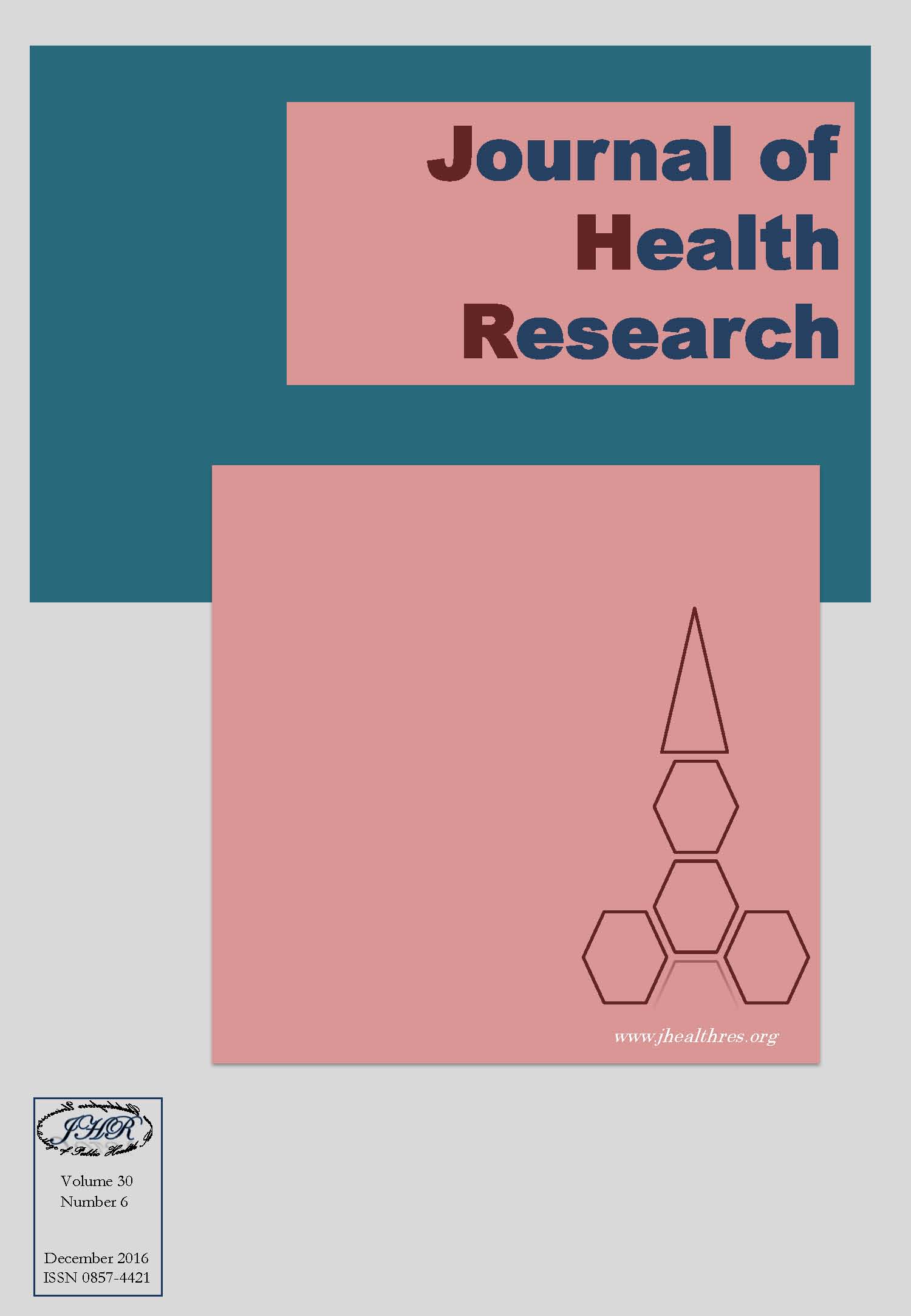Prevalence of glucose-6-phosphate dehydrogenase variants among malaria patients in a malaria-endemic area along Thai-Myanmar border
Keywords:
Glucose-6-phosphate dehydrogenase deficiency, Mahidol variant, Malaria, Thai-Myanmar borderAbstract
Background: Glucose-6-phosphate dehydrogenase (G6PD) deficiency is relatively common in malaria-endemic areas. This deficiency can lead to hemolysis and impact on malarial treatment with primaquine. The objective of this study was to examine the prevalence of G6PD variants in malaria patients living in malaria endemic regions along the Thai-Myanmar border.
Methods: One hundred and nine dried blood spot samples were collected from malaria clinics in Mae Hong Son, Tak, and Ranong provinces during 2011 to 2013. Three variants of G6PD mutation, i.e., Mahidol, Viangchan, and Chinese 4, were detected by polymerase chain reaction (PCR).
Results: Only Mahidol variant was found with the frequency of 9.17% (10/109), 1 in Thailand (4.17%) and 9 in Myanmar (10.58%).
Conclusions: The frequency of G6PD Mahidol variants found in one hundred and nine patients was associated with ethnicity. This may have an impact on treatment with primaquine and other 8-aminoquinoline antimalarial drugs.







